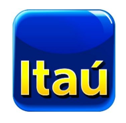Itaú Unibanco

Itaú Unibanco
Brazil, Financial Services
What Itaú Unibanco says about its journey towards integrated reporting
The adoption of the Integrated Report by us, about five years ago, meant a natural evolution in transparency, since we were the pioneer among the Brazilian financial institutions and one of the first banks in the world to sign up to the pilot program for the IIRC integrated reports in 2013.
This new reporting model enabled us to present our corporate information in a more unified and concise format, associating financial results with the value created by our social and environmental initiatives. This is another way to present transparently our company’s strategies, businesses, products and services, and how it generates and shares value among customers, shareholders, employees and society. This model also aims to anticipate goals and challenges, providing investors and other stakeholders with a more prospective and strategic vision of the company.
This type of integration presupposes a rupture of the management model, in that it introduces variables, making some decisions more complex. It requires behaviour changes and process reviews, which never occur overnight or unimpeded. In general, we have found that they are one-off barriers, quickly overcome, and once overcome, tend to bring long-term benefits.
There are many obstacles and dilemmas that managers of large companies encounter on a daily basis in their most varied areas of activity. Undoubtedly, one of these great challenges is to achieve balance in the way we communicate with all audiences appropriately, with ethics and transparency as the main foundations, without losing focus. The implementation of good practices not only brings discipline to the relationships in different areas of the organisation, but it also enables a more professional management.
In addition to a structural change in the way information is presented, the new model suggests a change in information governance and illustrates how the company manages its capitals (human, intellectual, financial, among others) to ensure sustainable performance. Thus, by promoting dialogue and transparency with stakeholders, we see that it is possible to attract more long-term investors, improve business through reputational gains, inspire and impact positive change in society.
It is clear to us at Itaú Unibanco that there is no alternative to transparency and consistency between discourse and practice. Any other path is not sustainable and this alignment begins in-house, in the company’s own culture, in the posture of its leaders and in the adoption of clear values.
You can view Itaú Unibanco’s 2019 Integrated Annual Report here.
About Itaú Unibanco
Itaú Unibanco is a publicly held company with a leading position in Brazil, an international footprint and deep roots in Latin America. The bank has approximately 95,000 employees, present in 19 countries. Eight of these countries are in Latin America, which is their priority in terms of international expansion. Their operations also comprise North America, Central America, Europe, Asia and Middle East.
Itaú offers a wide range of banking products and services to a diversified base of individuals and companies, the bank’s account holders and non-account holders. They have over 46,000 ATMs, and 5,000 branches and service centres in Brazil and abroad. Their financial resources totaled R$1.3 trillion in 2016.
Itaú’s history spans more than 90 years and they are increasingly more digital. Eight years ago around 74% of their transactions were conducted from standard channels; in 2016 73% are conducted from digital channels, which represented 10.9 billion in transactions.
The bank’s vision is to be the leading bank in sustainable performance and customer satisfaction. Itaú’s purpose is to promote positive changes in the lives of people and society. For the 13th consecutive time Itaú Unibanco was elected, by the Interbrand consultancy, the most valuable brand in Brazil (R$ 26.6 billion in 2016).
Itaú’s commitment to society leads the bank to serve as an agent of transformation by working for great causes, such as education, health, culture, sports and mobility, continuously seeking the common good and contributing to the country’s development.
